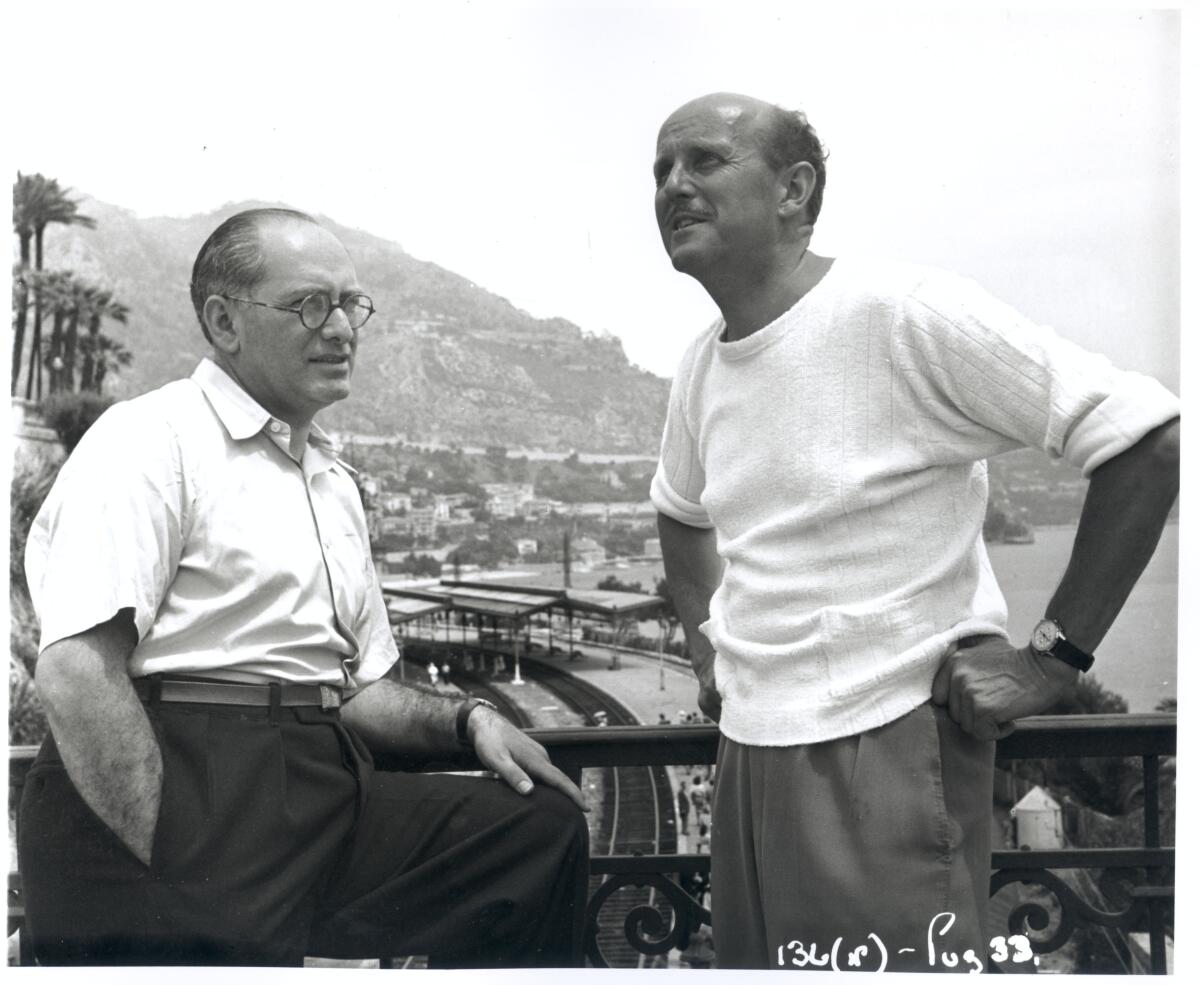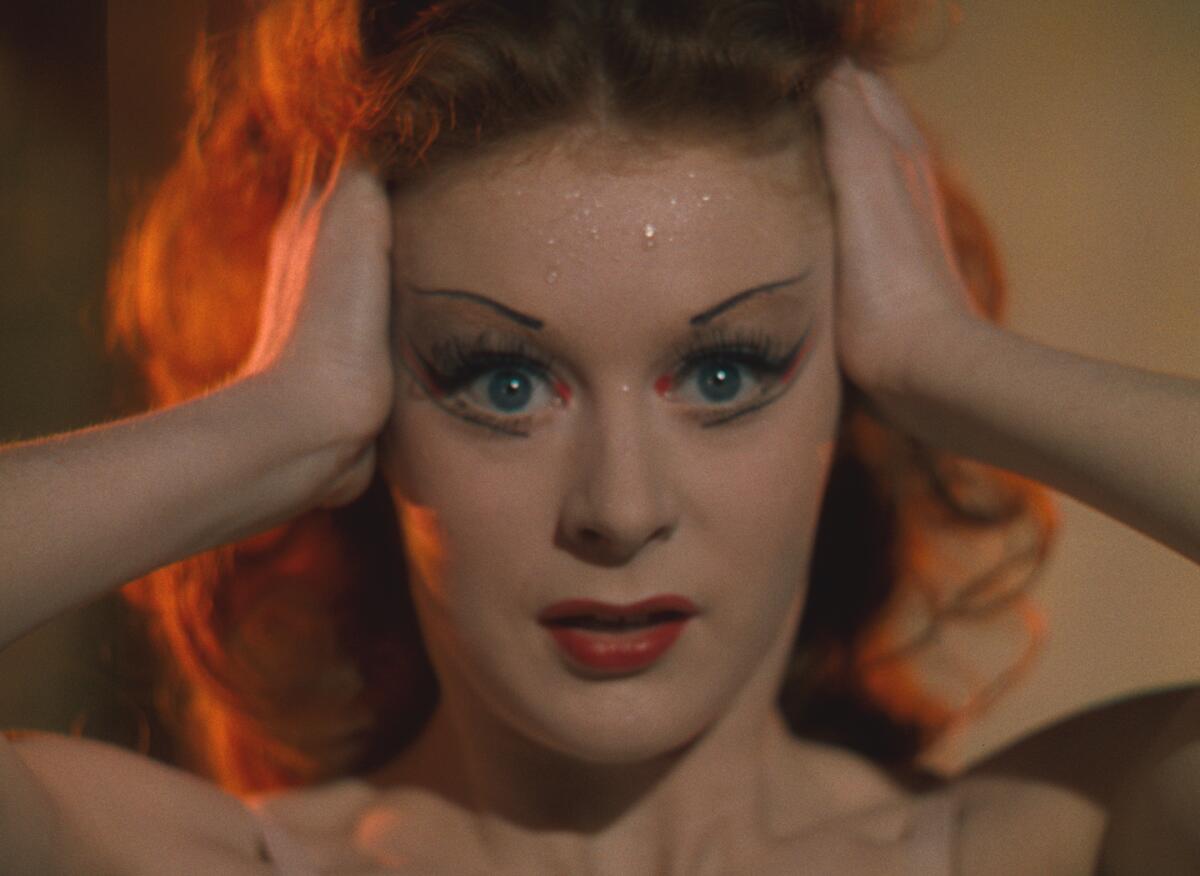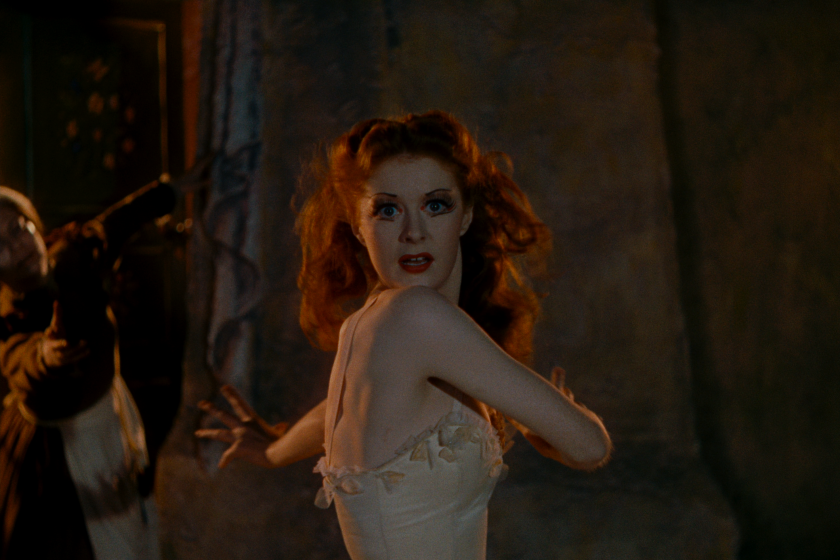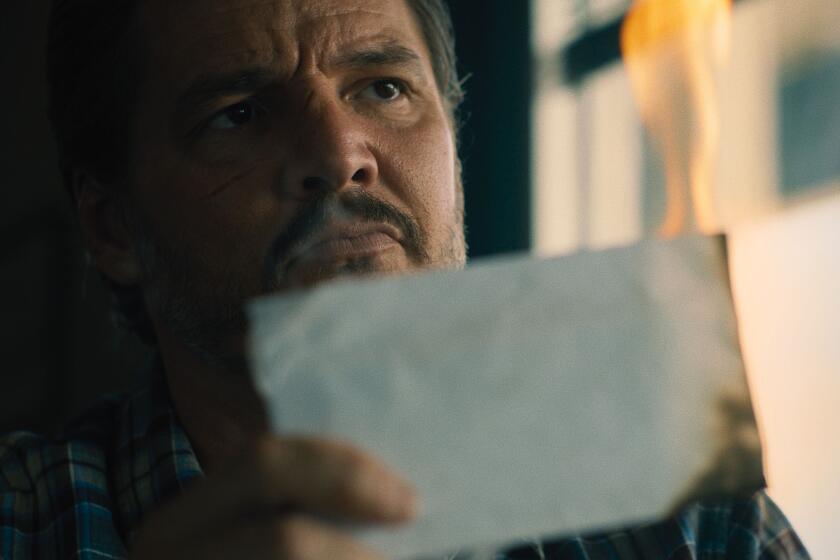‘Made in England: The Films of Powell and Pressburger’ celebrates a colorful partnership

- Share via
Those who believe that filmmaking is inherently collaborative know that the movies written, produced and directed by the Englishman Michael Powell and the Hungarian Emeric Pressburger prove as much, brilliantly. Their 1940s classics — a wartime-to-peacetime stretch of visionary teamwork that includes “The Life and Death of Colonel Blimp,” “Black Narcissus” and “The Red Shoes” — are timeless enchantments that cracked open the art form in ways that were deeply human, subversive and undeniably magical.
One rapt convert was Martin Scorsese, an asthmatic child glued to the family‘s TV, especially spellbound by the opera fantasia “Tales of Hoffman,” even when it was fuzzily transmitted through a tiny black-and-white set. Since becoming a director himself (and befriending Powell in the 1970s), Scorsese has made championing their films a lifelong mission, in recognition of their subconscious inspiration on his own work.
Clearly there’s no better narrator than an obsessive like Scorsese for an archival dive into the duo’s unusual and extraordinary oeuvre. It’s his heartfelt analysis as host of filmmaker David Hinton’s documentary “Made in England: The Films of Powell and Pressburger” that puts this rewarding, personalized master class above most movies about movies. (Its release also wonderfully coincides with the Academy Museum’s current restoration-packed retrospective, “Tellers of Tales,” running through Aug. 19.)
This week: Powell and Pressburger films at the Academy, catching up with critic Jonathan Rosenbaum, plus ‘The Terminator’ and Ingmar Bergman’s ‘Cries and Whispers.’
Both Powell and Pressburger apprenticed in foreign lands, the former in France under MGM silents stalwart Rex Ingram, the latter as a screenwriter in Berlin at the legendary UFA studios. Later they met, through producer Alexander Korda, in mid-’30s England. (Pressburger called his emigration “being born at 33.”) In an interview clip from later years, Powell charmingly recounts his initial awe at the Hungarian’s storytelling talent, calling him “a beautiful mind.”
Their pioneering creative partnership — eventually known as The Archers, with its distinctive bull’s-eye logo — was forged amid the U.K.’s need for wartime propaganda and cemented in the thematic seriousness and ingenious craft gracing films such as “Colonel Blimp,” their slyly patriotic satire of British war leadership, and “A Matter of Life and Death,” the fantastical trial-in-heaven romance. But the duo also bewitchingly fused romantic comedy and spiritual fable (“I Know Where I’m Going!”), brought a soundstage-built Himalayan convent to feverish Technicolor life (“Black Narcissus”) and, perhaps most fittingly for these fierce protectors of the artistic life, turned a ballerina’s professional dilemma into “The Red Shoes,” a masterpiece of dreamlike passion. Of that film’s avant-garde, rapturous 15-minute ballet sequence, Scorsese says, with a near hushed reverence, “You got the sense that anything could happen.”

The partnership couldn’t last, a sadly familiar story beginning with their loss of total control, and when Powell (without Pressburger) made 1960’s “Peeping Tom,” about a psychopathic filmmaker, it seemed nobody wanted whatever strange dream he was conjuring anymore. Powell and Pressburger’s friendship remained, but their reputations — unlike those of U.K. giants David Lean, Carol Reed and Alfred Hitchcock — seemed to go the way of a burned-off highland mist. That changed with the attention of people like Scorsese, the stewardship of Scorsese’s longtime editor Thelma Schoonmaker (who became Powell’s wife and widow) and the rise of a cineaste culture more accepting of uncompromising artistry.
As enlightening an overview as “Made in England” is, with Adrian Johnston’s original score playing like a theme from a lost work of theirs, it’s also a beautiful reminder that love for our favorite movies is an evolving relationship. The films themselves may be locked in place, but the feelings they evoke can seem boundless. Scorsese is particularly moving about this, citing “Colonel Blimp” and its wise, witty and melancholy tale of old ways, as an ever-deeper companion of his over the years. Great art will always have that hold, and with any luck, “Made in England” will not only spur a rewatching frenzy for Powell and Pressburger fans but give birth to new ones.
‘Made in England: The Films of Powell and Pressburger’
Not rated
Running time: 2 hours, 13 minutes
Playing: In limited release Friday, July 26
More to Read
Only good movies
Get the Indie Focus newsletter, Mark Olsen's weekly guide to the world of cinema.
You may occasionally receive promotional content from the Los Angeles Times.











